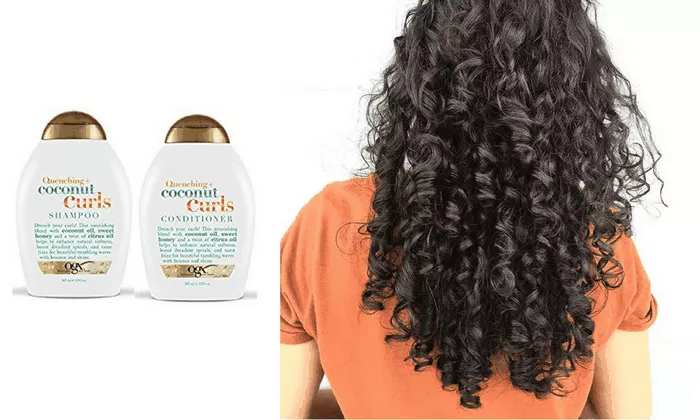In the pursuit of luscious, healthy hair, the role of essential vitamins cannot be understated. Among these, folic acid, also known as vitamin B9, has been gaining recognition for its potential to boost hair growth and vitality. In this comprehensive article, we will delve into the multifaceted benefits of folic acid for hair growth, exploring the science, recommendations, and potential side effects to provide you with a well-rounded understanding of this critical vitamin.
The Science Behind Folic Acid and Hair Growth
Folic acid, a water-soluble B vitamin, is crucial for various bodily functions, including the growth and repair of cells. Here, we’ll break down the science behind how folic acid supports hair growth.
1. Cell Division and Hair Follicles
Hair growth begins at the hair follicles, where hair cells actively divide and grow. Folic acid plays a pivotal role in this process by facilitating DNA synthesis and cell division, essential for the generation of new hair.
2. Blood Circulation
Folic acid also supports overall blood circulation. A well-nourished scalp with adequate blood flow ensures that hair follicles receive the nutrients and oxygen necessary for robust hair growth.
3. Oxygen Transport
Folic acid aids in the transport of oxygen to the hair follicles, ensuring that they function optimally and promote healthy hair growth.
Benefits of Folic Acid for Hair Growth
Now that we’ve explored the science, let’s dive into the various ways in which folic acid benefits hair growth.
1. Improved Hair Thickness and Strength
Folic acid contributes to stronger, thicker hair strands by enhancing cell division and promoting the development of new, healthy hair.
2. Reduced Hair Loss
Many individuals experience hair loss due to various factors. Folic acid can play a role in reducing hair loss by supporting the overall health and vitality of hair follicles.
3. Prevention of Premature Graying
While genetics primarily influence graying, folic acid may slow down the process by promoting healthy hair growth.
4. Enhanced Nutrient Absorption
Folic acid aids in the absorption of essential nutrients, ensuring that your hair receives the nourishment it needs to thrive.
Dietary Sources of Folic Acid
Folic acid is a vital nutrient that must be obtained through your diet. Here, we’ll explore foods rich in folic acid, providing you with practical recommendations for boosting your folic acid intake.
1. Leafy Greens
Spinach, kale, and broccoli are rich sources of folic acid. Incorporating these vegetables into your diet can help you meet your daily folic acid needs.
2. Legumes
Beans, lentils, and chickpeas are excellent sources of folic acid. Consider adding them to soups, salads, or as a side dish.
3. Fortified Foods
Many cereals and grains are fortified with folic acid. Check food labels to identify folic acid-enriched options.
4. Supplements
If it’s challenging to meet your folic acid needs through food alone, supplements are a viable option. Consult with a healthcare professional to determine the appropriate dosage.
Recommended Folic Acid Intake for Hair Growth
To harness the benefits of folic acid for hair growth, it’s essential to consume the right amount. Recommendations vary, but a typical daily intake for adults is 400 micrograms (mcg). However, consult with a healthcare provider for personalized advice.
1. Special Considerations
Pregnant women and individuals with certain medical conditions may require higher folic acid intake. Discuss your specific needs with a healthcare professional.
2. Combining Folic Acid with Other Nutrients
Folic acid works synergistically with other vitamins and minerals like biotin, vitamin B12, and iron to promote optimal hair health. Ensure a balanced intake of these nutrients.
Potential Side Effects and Precautions
While folic acid is generally safe, it’s important to be aware of potential side effects and precautions.
1. Overconsumption
Excessive folic acid intake can mask symptoms of vitamin B12 deficiency, so it’s crucial to maintain a balanced approach.
2. Medication Interactions
Folic acid may interact with certain medications. If you’re taking medications regularly, consult your healthcare provider for guidance.
3. Allergic Reactions
In rare cases, individuals may experience allergic reactions to folic acid supplements. Discontinue use if you encounter any adverse effects.
See Also: Mastering Hair Care with GISOU Scalp Treatment: A Quick Guide
In conclusion
Folic acid is a vital nutrient with far-reaching benefits for hair growth. Understanding the science behind it, incorporating folic acid-rich foods into your diet, and following recommended intake guidelines can help you unlock the full potential of this vitamin. While it’s not a magical solution to hair growth, folic acid plays a significant role in supporting healthy, vibrant locks. Always consult with a healthcare professional for personalized advice and guidance on supplementation.


